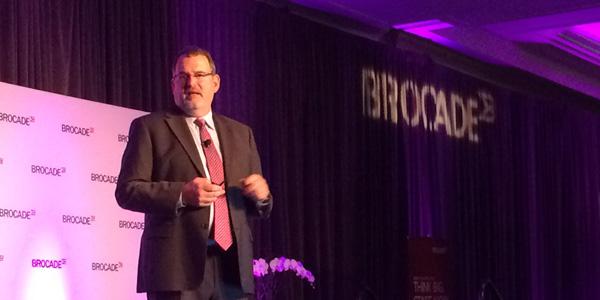New Teams to Battle Cyber Vulnerabilities in Nation's 'Most Important Mission'
In what has become one of the White House’s highest priorities, the federal government is forming digital services teams to address the mounting number of cybersecurity breaches threatening the nation’s security and coffers, according to government’s top chief information officer.
In what has become one of the White House’s highest priorities, the federal government is forming digital services teams to address the mounting number of cybersecurity breaches threatening the nation’s security and coffers, according to government’s top chief information officer (CIO).
The nascent teams, eventually residing within each of the federal agencies, will seek solutions to combat cyber vulnerabilities and rely heavily on the private sector for answers, Federal CIO Tony Scott told an audience at the Brocade-sponsored Federal Forum in Washington, D.C. “This is our most important mission today.”
“If those get funded the right way, the CIOs will be able to use those teams and surgically go after some of the most important transformations in each agency,” said Scott, who has been in the job for four months. “I’m pretty excited about that initiative. We’re recruiting some great talent from outside and we’re finding some great talent inside the federal government that can make those teams work really well.”
Last week, the White House-led effort established a 30-day cybersecurity sprint team to analyze the government’s policies and available resources, and devise plans to “rapidly accelerate our progress in this area,” Scott said.
Perhaps equally important to security initiatives is the need to modernize aging, single-vendor networks, he said. The government must recognize the need to invest money for modernization to eventually realize significant savings. “We’re going to have to replace large parts of what we’ve got, because it just was never designed for the mission and the challenges we face today, particularly in the cybersecurity space,” Scott said of networks and information technology systems that are 30 and 40 years old. “A lot of our efforts have been gluing on security to those old environments. It’s like trying to put airbags in a ’65 Mustang—you could theoretically do it, but it would make the Mustang ugly and … might not even work all that well.
“My angst level has gone way up on [cybersecurity] over the last couple of years, and I guarantee you, the amount of time CIOs and their teams are spending on this issue has also gone way up.”
As federal agencies begin the process of modernizing the networks, David DeVries, principal deputy CIO for the Defense Department, said he predicts software-defined networking as a capability promises to be the most disruptive technology to hit the federal government.
For the most part, the convergence of big data, cloud and mobility presents some of the most significant challenges as the government seeks to embrace fast-moving technological changes presented by industry, said Kay Kapoor, president of AT&T Government, who moderated a panel of federal CIOs during the one-day symposium.
The panelists echoed Kapoor’s assessment, adding the government seeks solutions from industry to manage big data.
“It’s all about the data,” said Margie Graves, deputy CIO for the Department of Homeland Security. “The data is so key, and the multiple ways in which we receive it—from sensors, from social media, from any kind of source you’re talking about. It is about being able to rein that in, filter it, do actual analytics to provide ourselves with situational awareness and ultimately be able to protect the American public based on that situational awareness. It’s all about the data and the key of pulling it forward to the right people … who can take action."
Capitalizing on providing secure services via “the game changer” of mobility is equally paramount, stated Frank Baitman, CIO at the Department of Health and Human Services (HHS). More and more Americans access the HHS not just via the Internet, but through mobile devices. "We need to be at the forefront of delivering those services so that this target population can, in fact, connect with their government and get the service that they expect and need out of the government," Baitman said. "I think mobility is changing everything. It's democratizing technology."




Comments